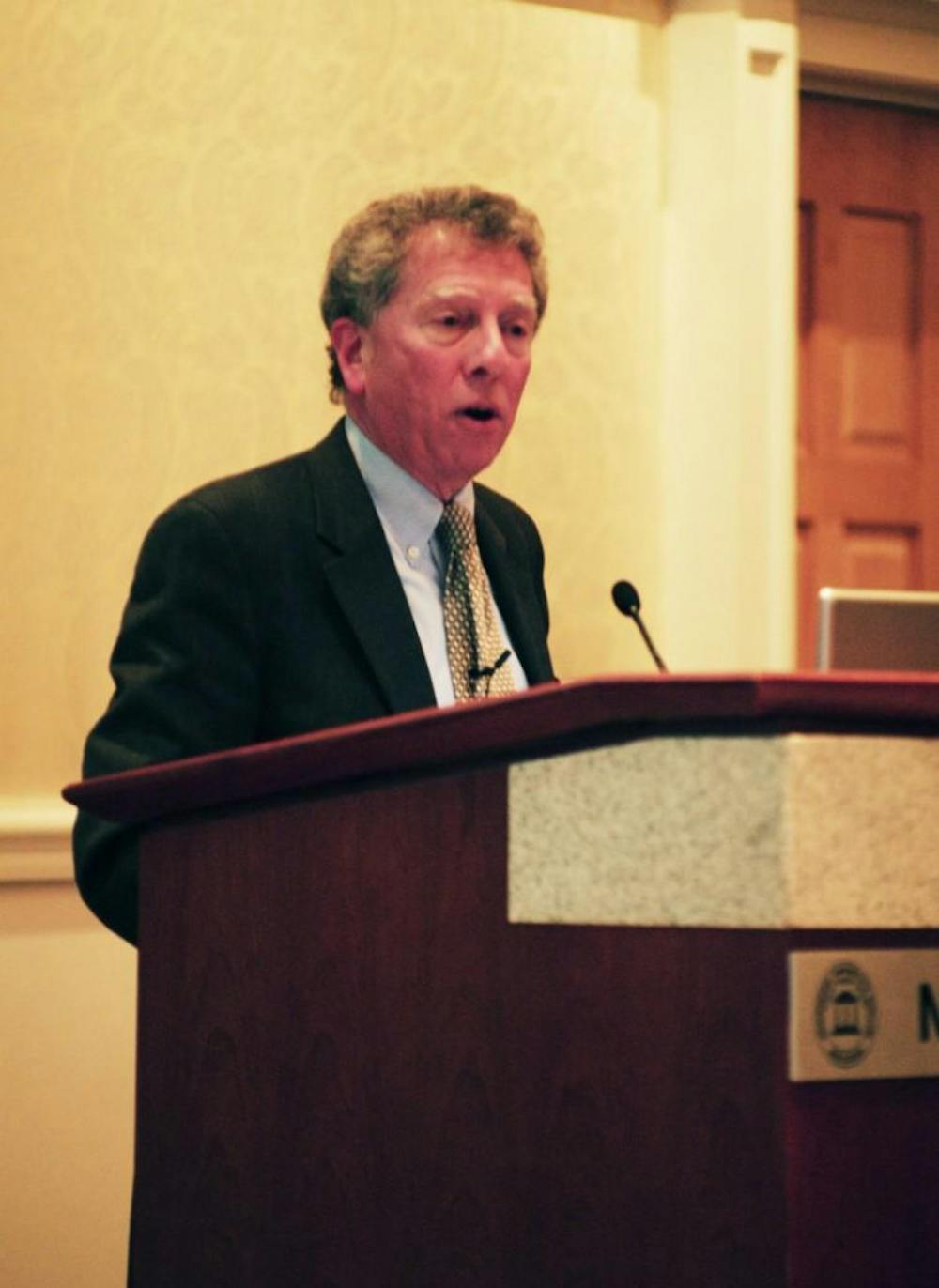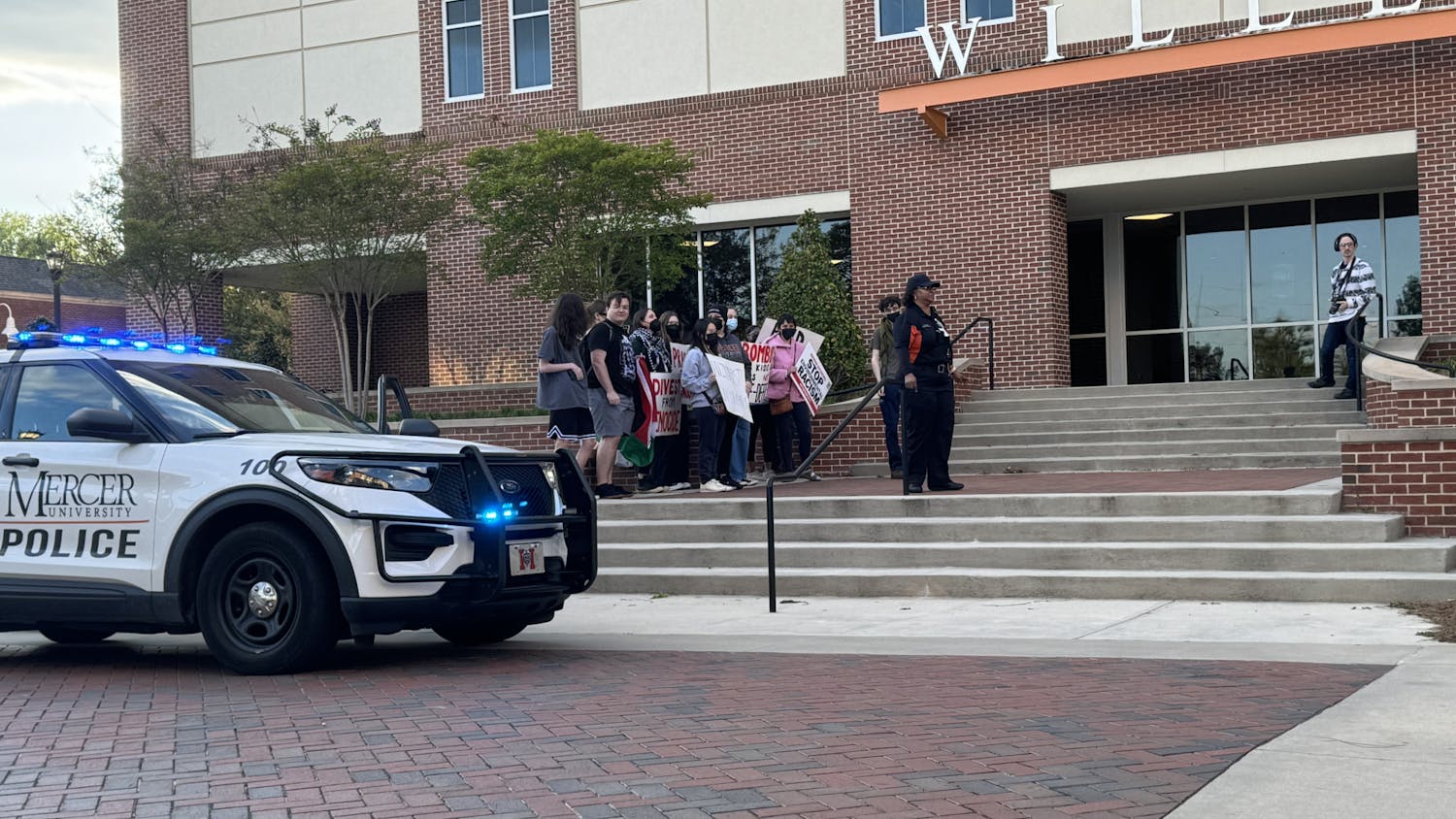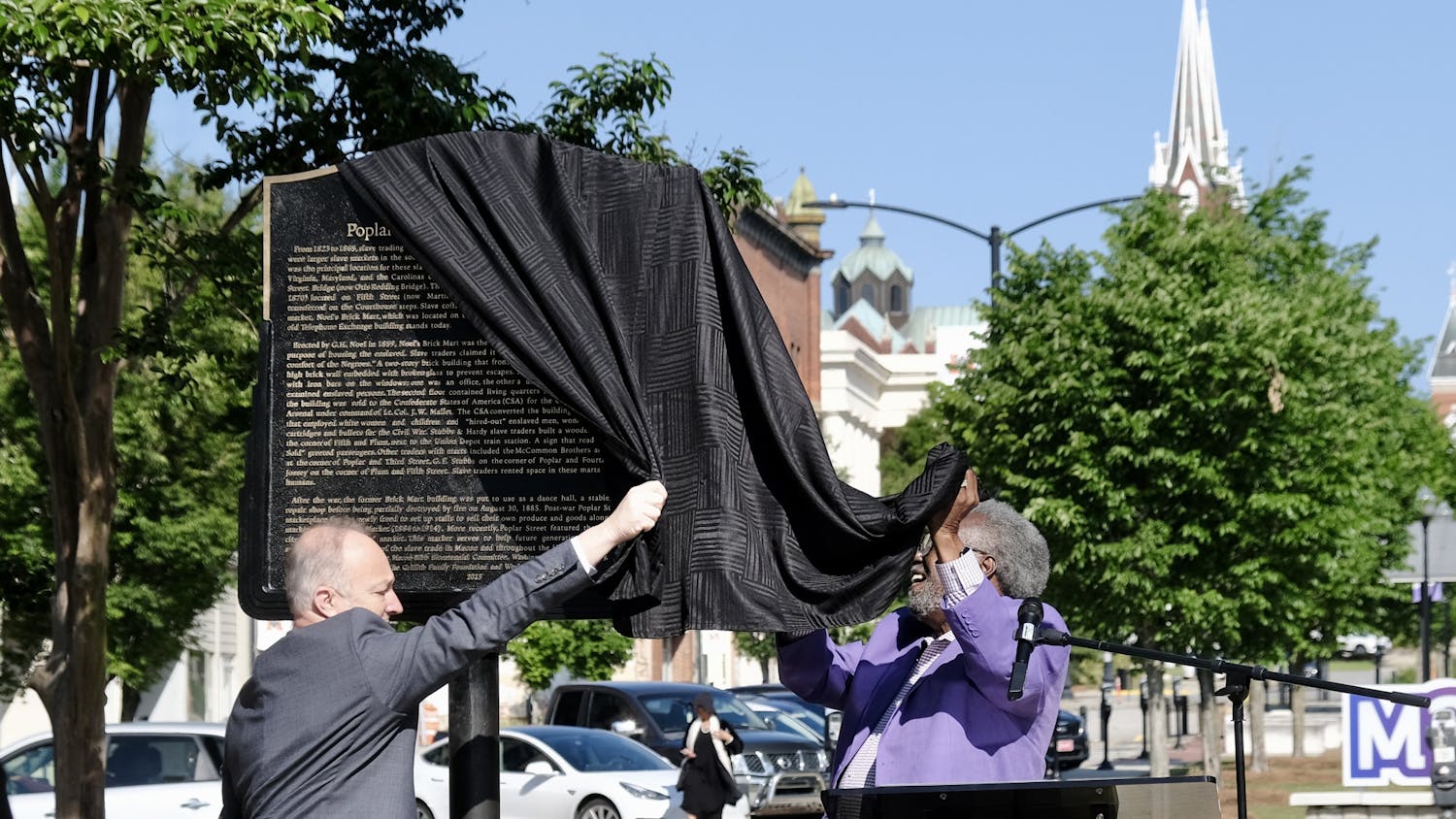Pulitzer Prize-winning author and former Atlanta Journal-Constitution and Philadelphia Inquirer editor Hank Klibanoff visited Mercer on Feb. 9 to deliver a lecture on coverage of race relations in the southern and national press during the last half-century, which is the topic of Klibanoff's most recent book, The Race Beat. co-authored with Gene Patterson.
Cluster online editor Carl V. Lewis – who just so happens to be a southern studies and journalism major – got the chance to spend the day with Klibanoff and chat with him about life, journalism, the South and unsolved racial murders.
CVL: I’m so glad you’re here in Macon. How’s it treating you so far?
HK: It’s not bad at all. [inlinetweet prefix="@hklibanoff" tweeter="" suffix="(via @mercercluster)"]Mercer has a beautiful campus, and I spent most of the afternoon driving around Macon checking out all the old Allman Brothers’ haunts. It’s a shame I don’t come down here more often.[/inlinetweet]
CVL: Tell me your story: What made you want to be a journalist?
HK: Well, I grew up loving newspapers. Like a lot of boys at the time, I loved reading the box scores for ball games every week. I was also a paper boy as a teenager, and I had a cousin working as a reporter for the New York Times who I really admired. So I guess it just came about naturally.
CVL: Now what about your other area of expertise––what got you interested in the civil rights movement and the nation’s race story?
HK: I grew up in Florence, Ala., which is a relatively small town in the northwestern corner of the state near Muscle Shoals. So I was coming of age in the rural South during the late ’50s and ’60s when the civil rights movement was just getting underway. I learned about it from newspapers, and I thought, “Boy, to be on the front lines of that story would be great.”
CVL: What was your first newspaper job?
HK: It was actually in high school. I went to a place called Coffee High, and I became editor of the school paper which was called The Stimulator––you know, like coffee being the stimulant. You couldn’t get away with an embarrassing name like that for a paper these days.
CVL: What about your professional career?
HK: I started out working for my hometown newspaper in Alabama, then got my first big time reporting job in 1972 for the South Mississippi Sun in Biloxi, Miss., where I covered state politics. Then I moved to Boston in 1979 to to take a job as a reporter for The Boston Globe. It was all uphill from there. I spent more than 20 years at The Philadelphia Inquirer and eventually became managing editor of the Atlanta Journal-Constitution.
CVL: Tell me a little about your Pulitzer Prize-winning book The Race Beat. What inspired you to write it?
HK: The book actually wasn’t my idea. It was my co-author’s, Gene Roberts. He got the contract to do it, and after three years asked me to help him out on it. At the time, I was the deputy city editor at The Philadelphia Inquirer. But I agreed to do it, and we won the Pulitzer in 2007.
CVL: What’s your take on the future of journalism?
HK: I think there’s a huge demand for mediated news, and that’s not going to change just because of the Internet. I know people will always have a hunger for news, and where there’s hunger, there’s jobs. It just may operate on a different platform than traditional newspapers have in the past.
CVL: So what advice might you give to aspiring journalists trying to break into the field?
HK: My advice? Just keep writing and get in the habit of writing every day. Build it in as a daily exercise and just persist, because the jobs will be there. The pay may not be as good, but I don’t know anybody who ever got into this business for money. I know plenty of people who left it for money, whether that be to have a more comfortable lifestyle or to spend more time with their families.
CVL: Do you have kids?
HK: I have three daughters, and my wife’s name is Laurie. I retired from the AJC in 2008.
CVL: What have you been doing since then?
HK: I’ve been helping oversee the Civil Rights Cold Case Project, which uses multimedia reporting to investigate unsolved racial murders that took place in the South during the civil rights movement. I also joined the faculty of Emory University’s journalism department last year.
CVL: Do you ever miss being in the newsroom?
HK: Sometimes, yeah. It gives you a real rush to be in the middle of breaking news. It’s a feeling that just can’t be found anywhere else.
Send all feedback on this interview to Carl V. Lewis at online@mercercluster.com





